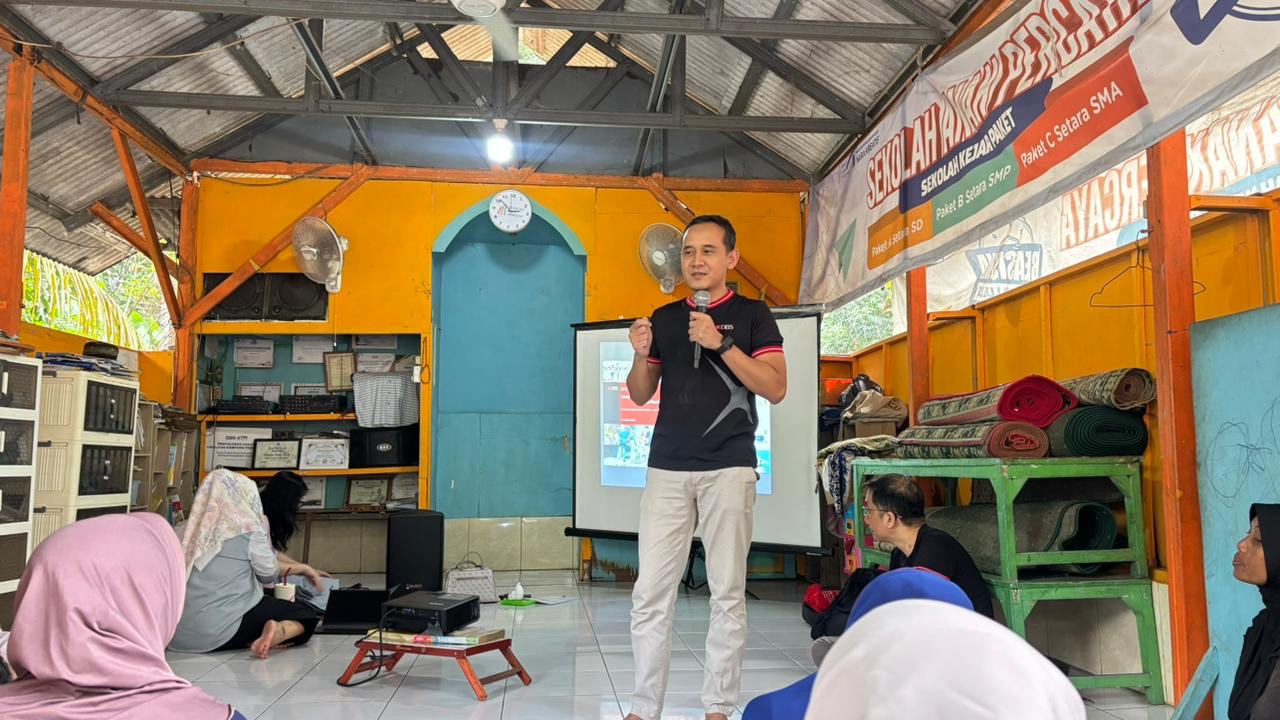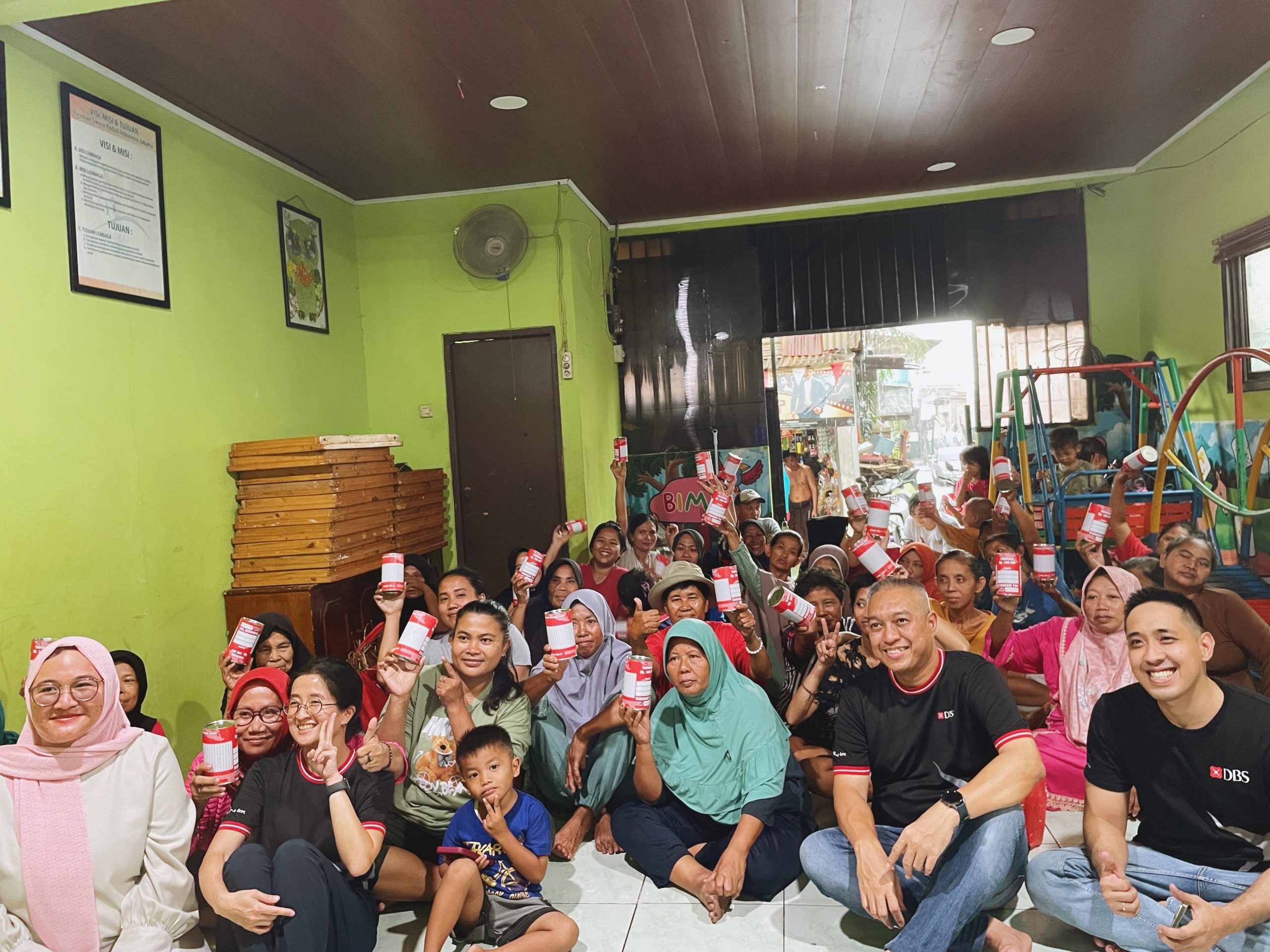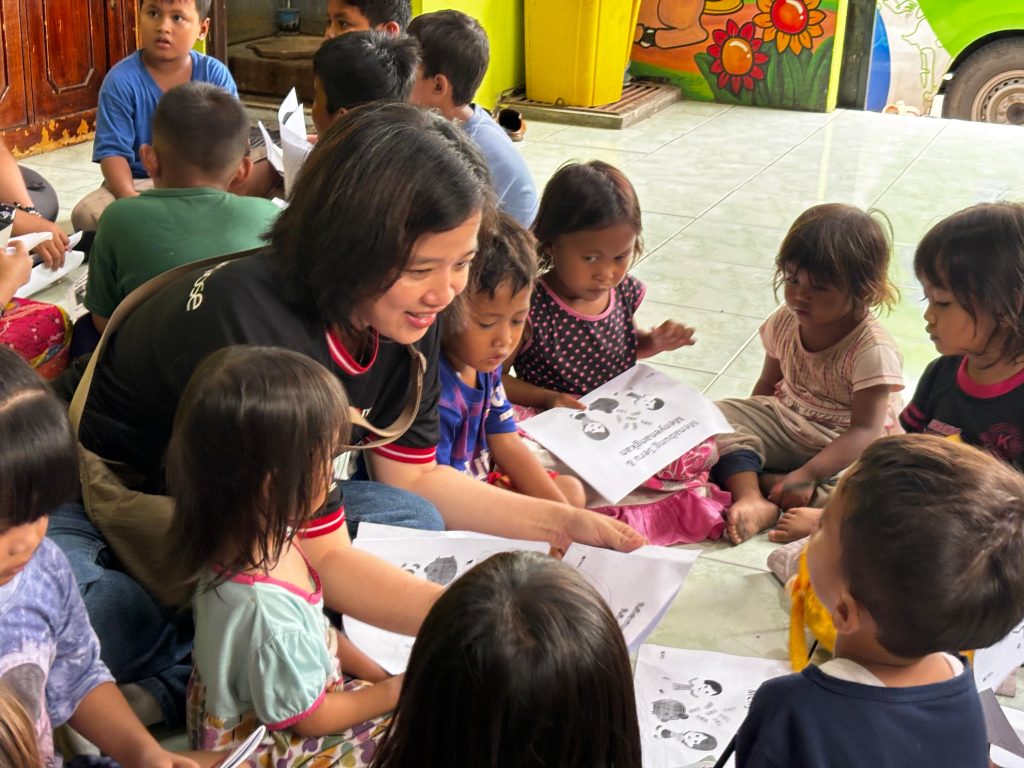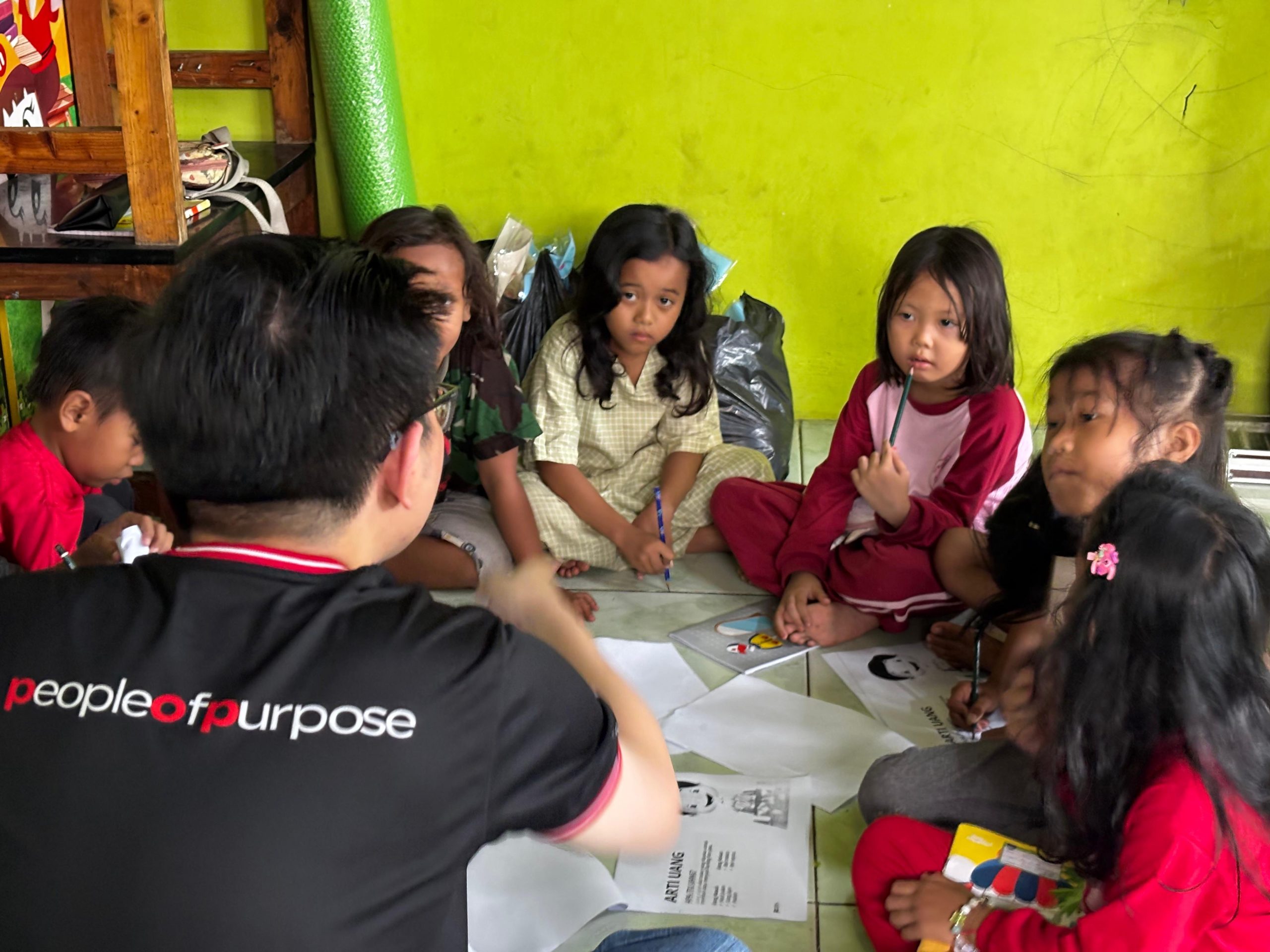BERITA
Creating Better Financial Habits for Waste Pickers Community
Every October, Indonesia celebrates Financial Inclusion Month, a national initiative that ensures everyone has access to and understanding of financial services. This year, Mahija, in collaboration with Bank DBS Indonesia through its People of Purpose volunteer program, conducted a series of financial literacy sessions for more than 100 waste workers across four Mahija-supported communities, which Duren Sawit, Jurang Mangu, Bintara, and Tanah Tinggi.
As the backbone of the recycling ecosystem, waste pickers play a vital role in protecting the environment. However, many of them have limited access to financial education or the tools to manage their income effectively.

Through these interactive sessions, Mahija and DBS Indonesia volunteers shared essential knowledge on basic financial management, starting from how to separate daily spending money and small savings, simple ways to track income and expenses, understanding how to borrow responsibly from trusted financial institutions to the importance of setting aside an emergency fund for urgent needs. All materials were delivered in an easy-to-understand and practical way, tailored to their daily realities.
The response was inspiring, many participants expressed enthusiasm and began saving small amounts of their income using DIY penny banks from DBS volunteers.

The program didn’t stop there. We also extended financial literacy education to the children of waste workers

Through fun, creative activities, the children learned what money is, why it should be used wisely, and why saving matters. They even learn how to make their own piggy banks from recycled plastic bottles — a simple yet meaningful activity that combines lessons in saving and recycling.
For Mahija and Bank DBS Indonesia, this initiative is more than just a way to celebrate Financial Inclusion Month, it’s a tangible commitment to fostering financial independence and social sustainability among Indonesia’s waste pickers communities.
These simple financial education marks the beginning of meaningful change. With a stronger understanding of how to manage their finances, waste workers and their families can start building better financial habits for a more secure future.
Alongside this effort, Mahija continues to provide essential training to support the daily lives and well-being of waste workers from health and nutrition education to occupational safety training

Subscribe to our newsletter

Contact
- info @mahijaparahitanusantara.com
- +62 811-1233-258
- South Quarter Building
- Tower C LT P Unit A-l
- JL RA Kartini Kav 8, Cilandak Barat
- Jakarta 12430
Quick Links
© MAHIJA PARAHITA NUSANTARA
